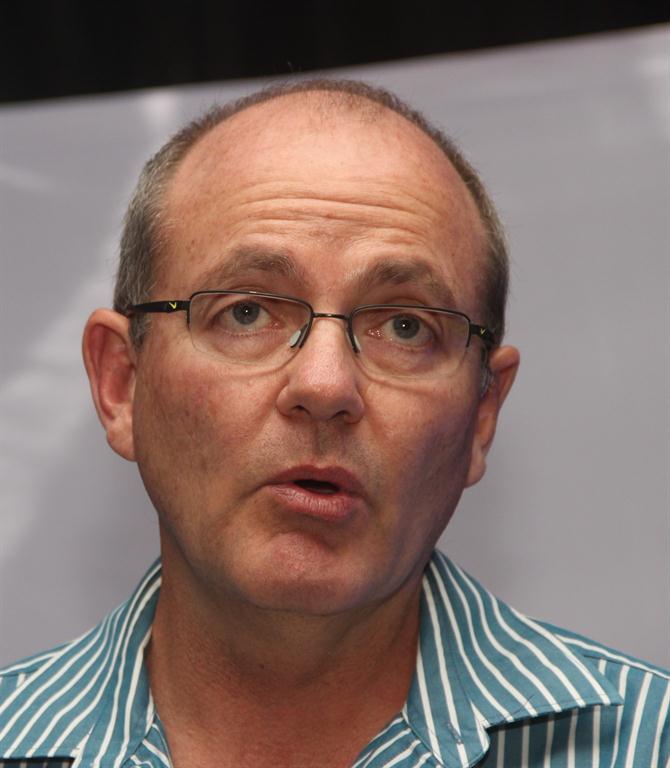Pilchards supply to remain steady
Etosha Fishing is one of the companies with fishing rights for pilchards.
The supply of pilchard in the local market will remain steady, even though catches reduced over the past two years.
Confirming the sustainability to Nampa on Friday, MD of Etosha Fishing Corporation at Walvis Bay, Pieter Greeff said the fish biomass is not enough to allow a bigger quota.
Etosha Fishing is one of the companies with fishing rights for pilchards.
Greeff was responding to queries that there might be a shortage of pilchards in Walvis Bay due to the reduction of their fishing quota and closure of their fish shop last year.
He said the business took a difficult turn since 2015 when they only caught 23 000 metric tonnes (MT) of the 25 000MT quota for that year.
It got even worse last year when their quota was reduced from 25 000MT to 14 000MT, of which they only caught 3 400MT.
Greeff said apart from fish going deeper into the ocean, bad weather conditions such as wind experienced particularly in deeper water also made it difficult to bring the fish to factory.
He said because of the low supply, the fish shop was closed and 23 employees were retrenched last year.
To keep 150 other people employed and sustain the business, the company resorted to importing extra frozen pilchard from Morocco for processing at their factory.
On Monday, he clarified that the import is done by their South African brand, Lucky Star, because Namibia does not have any dealings with Morocco.
“With the 14 000MT quota and the import from Morocco, we will be able to have enough pilchards for consumers.”
An investigation by Nampa in Walvis Bay and Swakopmund found stock in all visited grocers.
Greeff is not sure of their quota this year, saying that will be based on whether the pilchard biomass has increased or decreased.
“We are doing everything to keep our head above water. If we close this factory it might not be rebuilt again, and imagine what that would mean to our economy.”
United's General Manager Richard Ahrens last year said they decided to have their catch processed at Etosha to save the business and the jobs of 122 permanent employees. The companies complement each other by sharing vessels and workforce.
He noted that Etosha is able to catch fish in areas United cannot reach, so they gave their vessels to Etosha to catch and process the fish for them. Permanent Secretary in the Ministry of Fisheries and Marine Resources, Moses Maurihungirire on Monday confirmed the cutting of quotas due to small fish stocks. He said this is done to allow the fish to multiply.
Maurihungirire stated that the quota for Etosha Fishing this year will remain 14 000MT.
NAMPA
Confirming the sustainability to Nampa on Friday, MD of Etosha Fishing Corporation at Walvis Bay, Pieter Greeff said the fish biomass is not enough to allow a bigger quota.
Etosha Fishing is one of the companies with fishing rights for pilchards.
Greeff was responding to queries that there might be a shortage of pilchards in Walvis Bay due to the reduction of their fishing quota and closure of their fish shop last year.
He said the business took a difficult turn since 2015 when they only caught 23 000 metric tonnes (MT) of the 25 000MT quota for that year.
It got even worse last year when their quota was reduced from 25 000MT to 14 000MT, of which they only caught 3 400MT.
Greeff said apart from fish going deeper into the ocean, bad weather conditions such as wind experienced particularly in deeper water also made it difficult to bring the fish to factory.
He said because of the low supply, the fish shop was closed and 23 employees were retrenched last year.
To keep 150 other people employed and sustain the business, the company resorted to importing extra frozen pilchard from Morocco for processing at their factory.
On Monday, he clarified that the import is done by their South African brand, Lucky Star, because Namibia does not have any dealings with Morocco.
“With the 14 000MT quota and the import from Morocco, we will be able to have enough pilchards for consumers.”
An investigation by Nampa in Walvis Bay and Swakopmund found stock in all visited grocers.
Greeff is not sure of their quota this year, saying that will be based on whether the pilchard biomass has increased or decreased.
“We are doing everything to keep our head above water. If we close this factory it might not be rebuilt again, and imagine what that would mean to our economy.”
United's General Manager Richard Ahrens last year said they decided to have their catch processed at Etosha to save the business and the jobs of 122 permanent employees. The companies complement each other by sharing vessels and workforce.
He noted that Etosha is able to catch fish in areas United cannot reach, so they gave their vessels to Etosha to catch and process the fish for them. Permanent Secretary in the Ministry of Fisheries and Marine Resources, Moses Maurihungirire on Monday confirmed the cutting of quotas due to small fish stocks. He said this is done to allow the fish to multiply.
Maurihungirire stated that the quota for Etosha Fishing this year will remain 14 000MT.
NAMPA





Comments
Namibian Sun
No comments have been left on this article